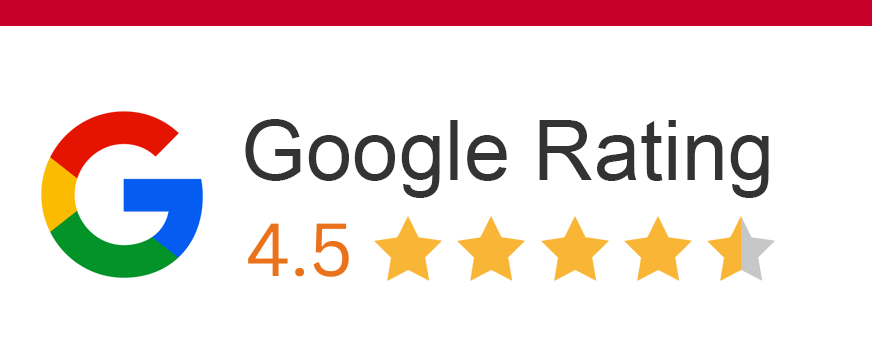Pay off the mortgage or debt first or should you keep overpaying your pension? Having a surplus amount may often confuse you about the next step that you should make. Here’s how you can deal with it. ⭐Financial Tips ⭐Money Management
Retirement is not the end of the road, it is the beginning of an open highway. People yearn for a happy and peaceful retirement. So much so, that they would rather give up on the temporary pleasures to fill their pension pot to the brim. However, the big numbers on bills can threaten these saving plans, mortgage taking up a major chunk. Getting on the property ladder by switching to Mortgage payments from rent, is a key financial goal for many. But mortgage repayment plans can last for as long as 35 years. This means that you may end up paying towards your mortgage, even in your retirement years. People often want to free themselves from the shackles of mortgage, as early as possible. On the other hand, some may feel more comfortable repaying their debt during their retirement years, should they have sufficient cash flow.
So what does one do when they get their hands on extra cash, through a raise or, perhaps, an annual bonus? Is it better to end the liability of mortgage for a stress-free retirement, or to pay into a pension to yield the benefits of tax returns?
Maximise your options: Compare and apply for loans below with LoanTube
Apply Filters

Loan Amount
£4000 -
£20000
Norwich Trust
Loan Term
1 -
10 years
4.8/5
Representative APR
22.9%
Minimum Age
21 Years
Representative Example If you borrow £20000 over 72 months, your representative APR will be 22.90% APR. Your monthly repayments will be £488.36 and the total amount repayable will be £35,161.92.

4.8/5
Norwich Trust
Loan Amount
£4000 -
£20000
Loan Term
1 -
10 years
Representative APR
22.9%
Minimum Age
21 Years
Minimum Income
£2000 per month
Representative Example If you borrow £20000 over 72 months, your representative APR will be 22.90% APR. Your monthly repayments will be £488.36 and the total amount repayable will be £35,161.92.

Loan Amount
£5000 -
£100000
Evolution Money Loans
Loan Term
1 -
20 years
4.5/5
Representative APR
28.96%
Minimum Age
18 years
Representative Example: Loan Amount: £20950.00, Loan Term: 85 Months, Interest Rate: 23.00% PA Variable. Monthly Repayments: £537.44. Total Amount Repayable: £45,682.15. This example includes a Product Fee of £2,095.00 (10% of the loan amount) and a Lending Fee of £714.00

4.5/5
Evolution Money Loans
Loan Amount
£5000 -
£100000
Loan Term
1 -
20 years
Representative APR
28.96%
Minimum Age
18 years
Minimum Income
Not mentioned
Representative Example: Loan Amount: £20950.00, Loan Term: 85 Months, Interest Rate: 23.00% PA Variable. Monthly Repayments: £537.44. Total Amount Repayable: £45,682.15. This example includes a Product Fee of £2,095.00 (10% of the loan amount) and a Lending Fee of £714.00

Loan Amount
£1000 -
£10000
1Plus1 Guarantor Loans
Loan Term
1 -
5 years
4.4/5
Representative APR
47.80%
Minimum Age
18 years
Representative example: If you borrow £3000 over 36 months at a Representative rate of 47.8% APR and an annual interest rate of 39.7%, you would pay 12 monthly installments of £143.84. The total charge for credit will be £2178.24 and the total amount payable will be £5178.24.

4.4/5
1Plus1 Guarantor Loans
Loan Amount
£1000 -
£10000
Loan Term
1 -
5 years
Representative APR
47.80%
Minimum Age
18 years
Minimum Income
Not mentioned
Representative example: If you borrow £3000 over 36 months at a Representative rate of 47.8% APR and an annual interest rate of 39.7%, you would pay 12 monthly installments of £143.84. The total charge for credit will be £2178.24 and the total amount payable will be £5178.24.
Overpaying your Mortgage
A mortgage is probably the biggest debt in a person’s lifetime. When you get a raise and have some additional money to bank on, the most tempting option would be to overpay your mortgage. This would decrease the amount of money that you would have to repay in future. It also has some impact on the overall term of your mortgage repayment. As a matter of fact, mortgage overpayment can help in more ways than one could imagine. For instance, if you made significant contributions towards your mortgage, you will have more equity in your property. This will give you a chance of finding better, more favourable deals while re-mortgaging for a better rate.
We can never predict what the future holds in store for us. You might have to move to another home for any given reason, or you may want to purchase another property. In such cases, finishing your mortgage repayment will give you an edge.
In either case, it is important to first carefully review your mortgage plan. Ideally, your mortgage plan should be on a repayment basis, wherein you pay the principal as well as the interest, before the end of your term. You should also check with your lender about any early repayment charges that they might levy if you pay in full before the end of your term.
Paying Towards Pension
For some, the aim is to end all financial responsibilities before retirement. While for others, it is more important to create a concrete foundation to fall back on, for their later years. When you pay towards your pension, you are basically reducing your taxable income. Pension funds have a number of tax reliefs associated with them. You will be entitled to ‘tax top-up’ by HMRC when you pay into a pension fund. For every £100 that you pay towards your pension, the government gives you an extra £25. If you are a top rate taxpayer, this amount changes to £50. The maximum amount that can be paid towards your pension annually, is £40,000. So if you start saving early, you may have a substantial amount of funds ready before you actually retire.
However, before investing a large sum of money towards your pension pot, it is important to carefully consider the implications. The current annual allowance is 100% of your salary or £40,000. But people may want to contribute a little extra towards a happy retirement. Recently, the government introduced a ‘tapered allowance’ for high earners, which mainly exerts influence on people earning over £150,000. This taper refers to the reduction in annual allowance from £40,000 to £10,000 for high earners. But once they reach the £110,000 mark, additional tax charges come into play due to the way tax charges are calculated. A number of people avoid working extra, just to prevent their income from reaching the £110,000 mark. Thus, it is important to take all these factors into account, before paying a lump sum towards pension funds.
An Example to Draw a Comparison
Let’s take a deep dive into this conundrum, but studying an analysis by Tom McPhail, the pensions expert at Hargreaves Lansdown. If a person has a mortgage with an interest rate of 6%, the total lump sum paid off and interest saved over, for instance, 25 years of overpaying £1,000 would be £1,568, assuming an inflation of 3%.
But if you pay the same sum towards pension, with an annual average growth of 6%, after 25 years it would be worth £2,116 for basic rate taxpayers, assuming a 3% inflation. For higher rate taxpayers the investment would be worth £2,366. This leaves the basic rate taxpayer who had invested in the pension £548 better off and the higher rate taxpayer £798 better off. However, it should be noted that pension funds cannot be accessed until you turn 55. Furthermore, you are obligated to turn 75% of the funds, into income.
On the other hand, having more equity over your property gives you a chance to benefit from better re-mortgaging deals. Mathematically, if there is a 0.25% cut from 6% to 5.75%, over 25 years, £1,000 paid off your mortgage would save you £9,594, of which £9,102 would be an interest saving. So paying towards a mortgage will, in all probability, start saving you your interest almost immediately.
What Suits you Best?
Before making any changes in your current repayment or pension fund plans, consider your psychological profile. A lot of people find it difficult to cope with the financial anxiety that comes with debt. For them, reducing their burden by paying towards the mortgage is an ideal plan of action. Therefore, it is important to strategically plan your finances in such a way that it leaves you with some buffer to make life a little easier. The initial goal still remains to secure a property in your name. Once you have achieved this, you can start saving towards your retirement years. That’s why it is important to analyse your strengths and find a balance between these two goals.
When it comes to saving for your pension, a good way to start is by checking how much you’ve already saved towards it, as well as how many years you have until retirement. If you are someone who is extravagant when it comes to spending money, you may probably be better off paying the extra money towards a mortgage. Whatever you choose to do with the money, is ultimately your call. But it doesn’t necessarily have to an ‘either/or’ situation. You can always try to find a balance and contribute towards both of these financial goals, to secure better future prospects. In both scenarios, you are using your money sensibly.


